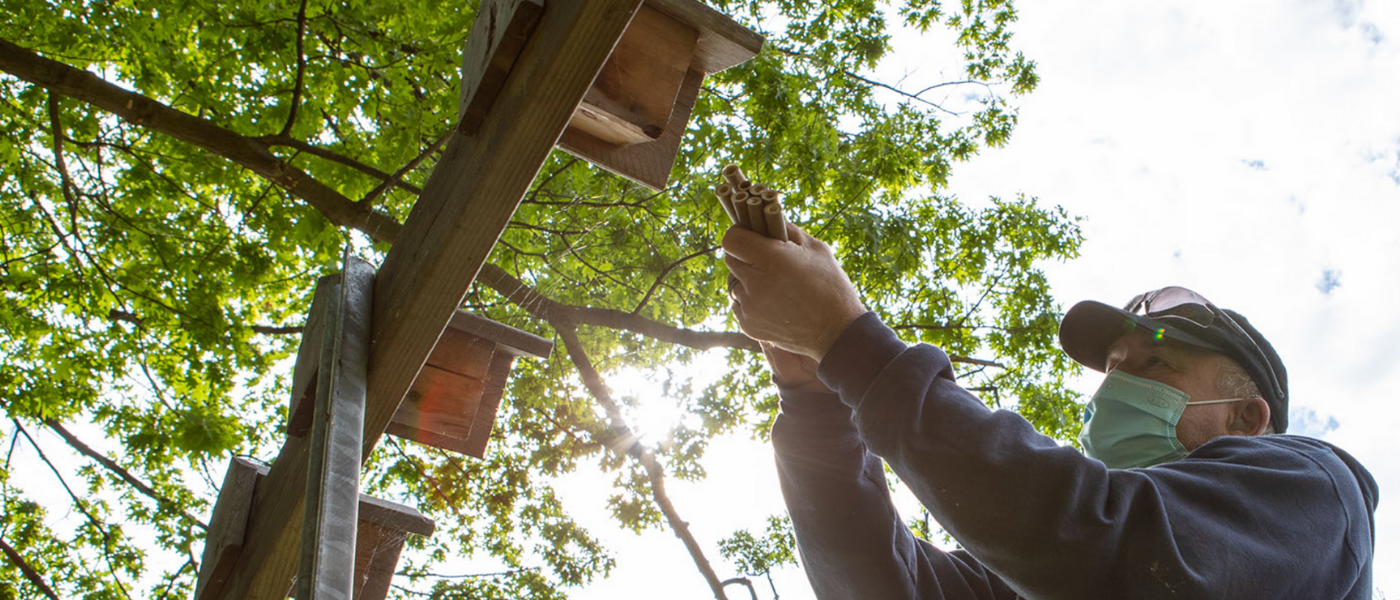
In this strategic driver, McMaster intends to grow in its commitment to collaborating across campus to promote a culture of sustainability through leadership, communications, engagement and learning as a community. The following stories of progress, projects and initiatives are just a few of the ways McMaster’s students, faculty and staff developed and deepened a culture of sustainability in the past year.
SPOTLIGHT: Going back to high school to fight climate change
Climate change is one of the most complex issues of our time, challenging the brightest minds to find a way to save the planet. So, how do you explain it to a 10th grader?
For the past 10 years, graduate students and faculty from the McMaster Centre for Climate Change (MCCC) have visited high schools in the Greater Toronto Hamilton Area. They bring their environmental sensors, tipping gage buckets and cross-sections of trees to bring this global issue to life in the classroom.
“We want to engage with youth so they are aware of the issues at a local level and provide them with some way they can contribute to fighting climate change,” says Tariq Deen, a PhD student in the hydrometeorology and climatology group in the School of Earth and Environmental Sciences.
“Climate change is a global issue with so many different ways it can impact people, but we try to show them it as a local issue – how it affects them in Hamilton and Halton.”
High school teachers often invite MCCC into their classrooms as a way to engage students when introducing a new climate change or sustainability unit.
One of the most popular activities has students comparing apples to oranges, literally. “We provide a list of foods and students try to determine whether they have low, medium, or high carbon footprints,” said Deen.
“We want them to feel that there is something they can do, so we talk to them about the choices they can make in what they eat, in what they buy and how that makes an impact.”
This program has also introduced many students to the possibility of climate change research as a career path. “Our Ph.D. students are getting to share their passion with the next generation of researchers,” said M. Altaf Arain, director of the McMaster Centre for Climate Change.
“Community outreach and engaging high school and McMaster students is key to the success of environmental sustainability.”
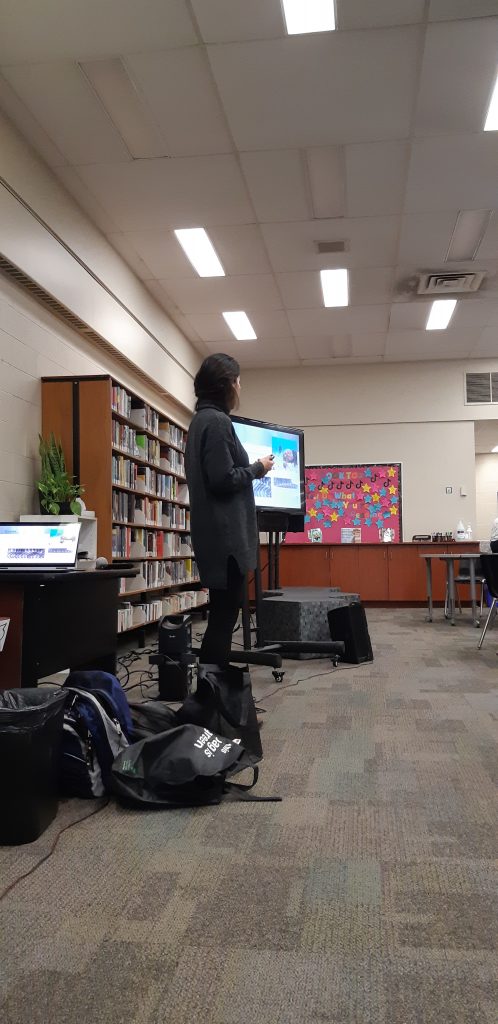
Information Box Group
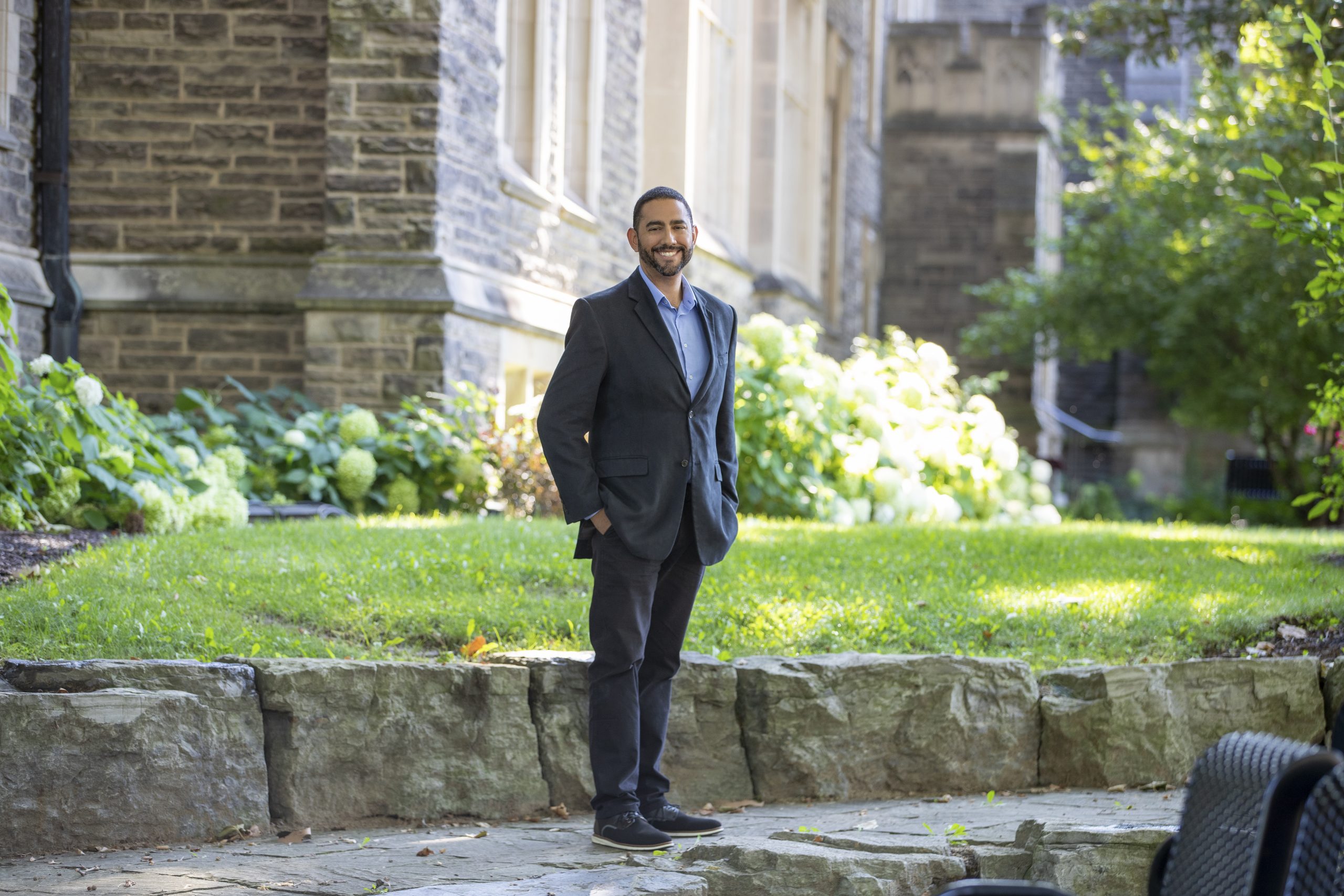
Leadership and Vision: Refreshing the Office of Sustainability Read More
The Office of Sustainability at McMaster will transform the campus into a living laboratory focused on carbon reduction, energy and waste management. As the newly appointed director of sustainability, Dave Cano, will play an essential role in executing important initiatives, developing ambitious targets and defining key metrics to reflect progress on our campus-wide Sustainability Strategy.
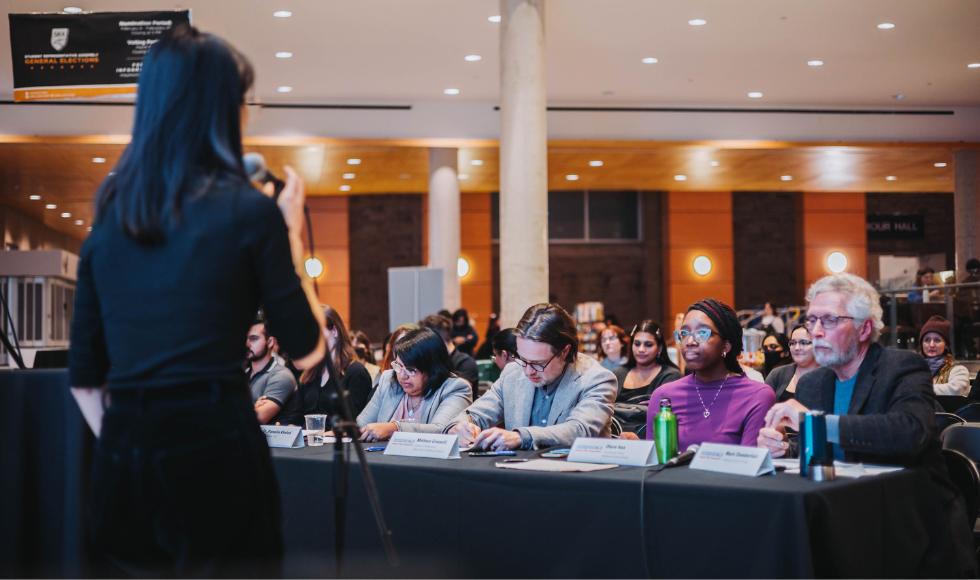
Strategic Partnership and Continued Engagement: Sustainable development goals pitch competition Read the whole story here
McMaster hosted its first United Nations’ Sustainable Development Goals (SDGs) Pitch Competition as part of SDG week across Canada. The competition, which was open to all McMaster students, had 21 participating teams from all six faculties.
The winners tackled issues such as reducing waste in McMaster’s Centro dining hall, increasing active and sustainable travel before, during and after Light Rail Transit construction and achieving gender equity in pre-clinical medical trials.
Communications: Updated Sustainability Policy McMaster's Sustainability Policy
As we transform campus into a living laboratory for sustainability, accessibility and inclusion, university policy provides a clear framework for action. The updated Sustainability Policy outlines how we all can use innovation, communication and community engagement to integrate an environmentally, socially and economically sustainable consciousness in all aspects of the university’s operations.
The Sustainability Policy can be found under McMaster’s Policies, Procedures and Guidelines.
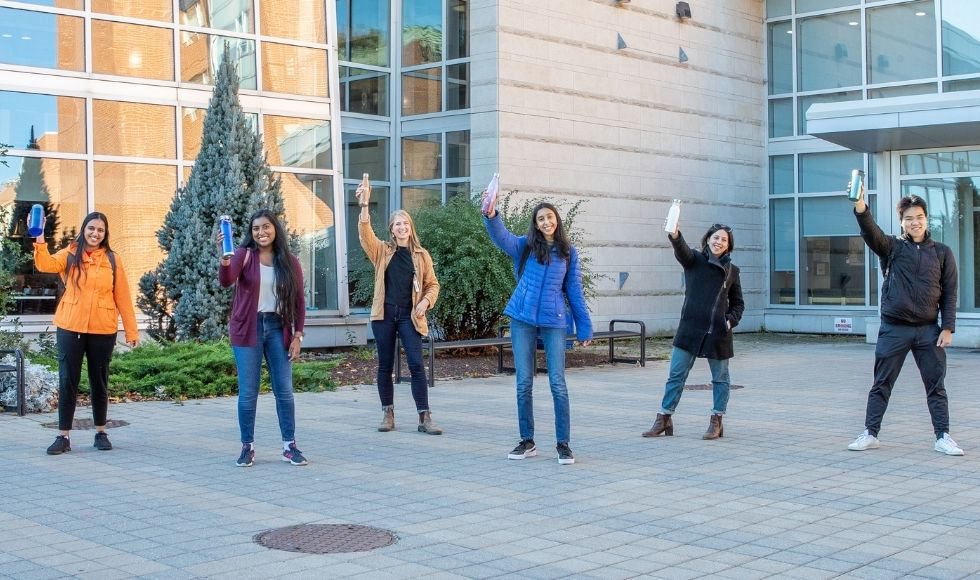
Learning and Development: Bring your own water bottle campaign Learn More About BYOB
A cross-campus working group of students, faculty and staff reduced single-use plastic water bottles through their Bring Your Own Bottle (BYOB) campaign.
The team secured funding through the McMaster Okanagan Special Projects Fund to promote campus water bottle filling stations with a website, an interactive map, signage and communications programs. For their efforts, the group was recognized with a President’s Award for Outstanding Service.

